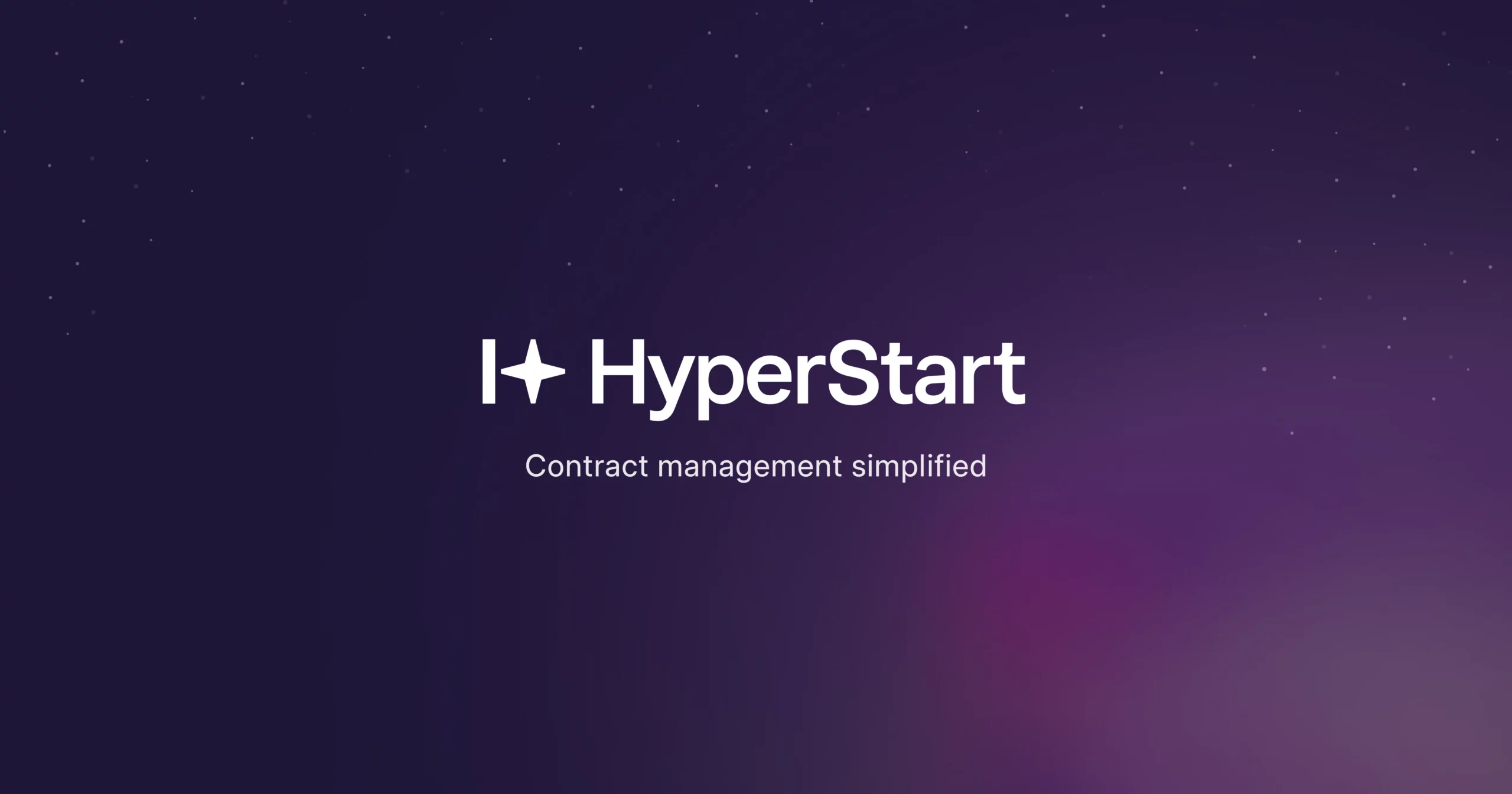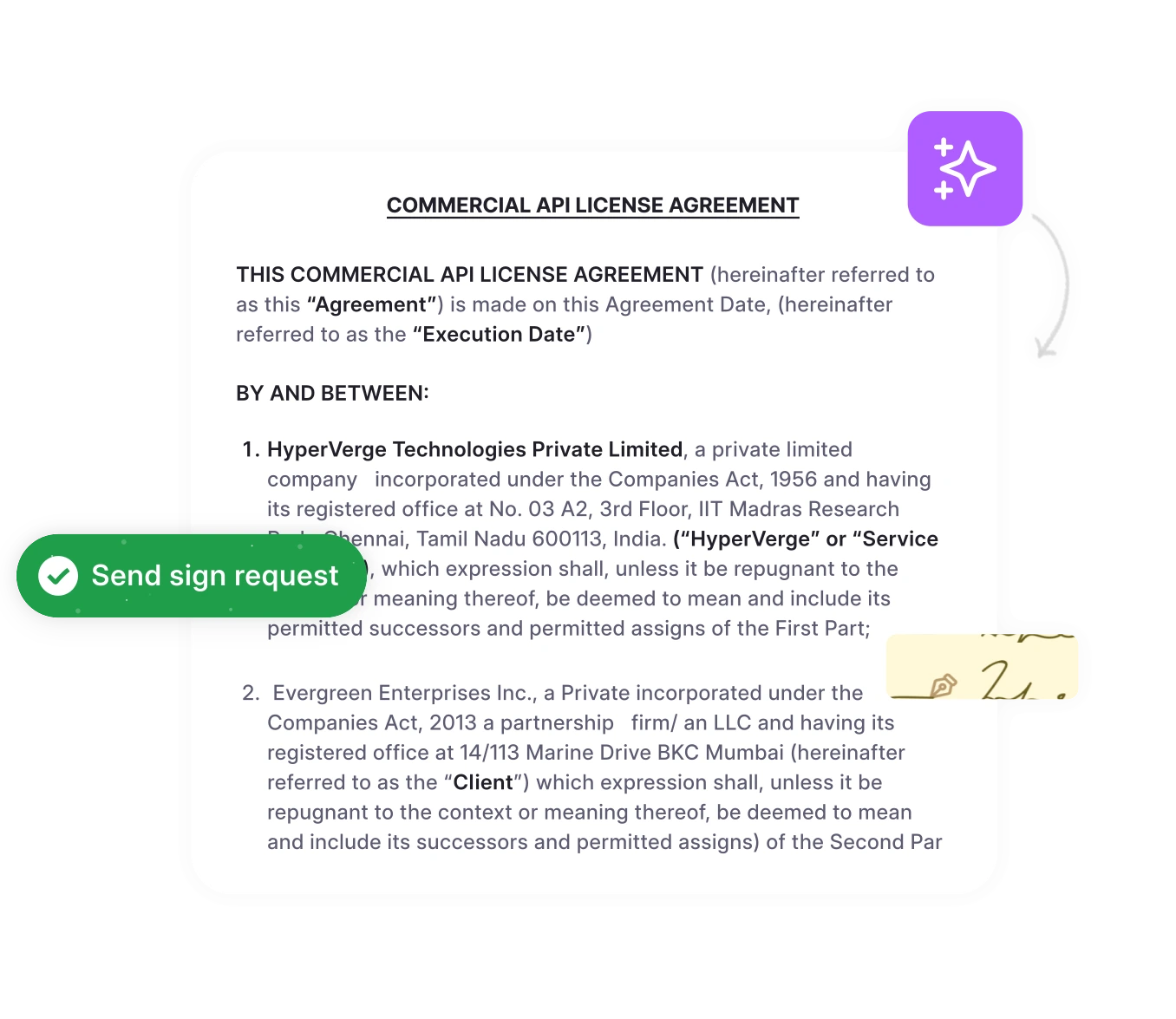Contracts can be intimidating.
Packed with legal jargon, dense paragraphs, and clauses designed to trip you up, they’re not exactly light reading.
Every contract you sign has real consequences for your business, finances, and legal standing. A small overlooked detail today could turn into a costly mistake tomorrow.
Ever signed something after just skimming it? Maybe a service agreement that locked you into a year-long commitment, a job contract with a sneaky non-compete, or a vendor deal with hidden fees. Or worse, a supplier contract with a strict termination clause that trapped you for years.
That’s why contract review isn’t just a formality, it’s essential. Whether it’s a business deal, employment agreement, or vendor contract, knowing what to look for can save you time, stress, and money.
A contract review checklist makes it simple. In this guide, we’ll show you how to spot red flags, clarify terms, and ensure your contract works in your favor.
Let’s get started.
What is the contract review process?
A contract review thoroughly examines a contract to ensure its terms and conditions are transparent, fair, and legally sound. This involves analyzing the agreement’s language, structure, and clauses to identify potential risks, ambiguities, or areas needing negotiation.
The primary goal is to safeguard the interests of all parties involved and ensure that the contract meets their expectations and legal obligations.
Contracts are legally binding documents that define the relationships between parties, whether they are individuals, businesses, or organizations. Different types of contracts require review, including sales agreements, employment contracts, vendor contracts, lease agreements, non-disclosure agreements (NDAs), and more.
A comprehensive contract review helps to:
Clarify obligations: Understand what each party is required to do.
Identify risks: Spot potential legal, financial, or operational risks.
Ensure compliance: Verify that the contract adheres to relevant laws and regulations.
Prevent disputes: Address ambiguous or unfair terms that could lead to conflicts later.
During a contract review, every clause is examined, from the scope of work and payment terms to termination conditions and dispute resolution mechanisms. The contract review process is crucial for both drafting new contracts and reviewing existing ones, ensuring that all parties are aligned and that the agreement is legally approved and ready to sign.
Why contract review matters
Business contract review is critical to modern commercial partnerships. It ensures that agreements are fair, legally binding, and aligned with the objectives of all parties involved. Overlooking or rushing through this process can lead to misunderstandings, disputes, and financial losses. Here’s why contract review is essential:
1. Safeguarding legal and financial interests
Contracts often contain complex legal terminology and terms that can significantly impact rights and obligations. A thorough review ensures these provisions are fair, balanced, and transparent, reducing the risk of unfavorable or legally ambiguous terms. For example, an unclear definition of “late delivery” in a penalty clause could create disputes. Identifying such ambiguities in advance helps prevent potential liabilities.
2. Detecting unfavorable or hidden clauses
Hidden within the fine print may be clauses that pose risks, impose unnecessary obligations, or limit key rights. A careful review helps detect these red flags, allowing for adjustments before the contract is finalized. For instance, a clause that restricts liability beyond industry norms could present a significant disadvantage. Addressing such issues early strengthens contractual security.
3. Ensuring compliance with laws and regulations
Contracts must comply with applicable laws, industry regulations, and organizational policies. A review verifies adherence to these requirements, preventing potential legal complications. This is particularly crucial in highly regulated industries, where non-compliance can lead to penalties or reputational damage.
4. Reducing the risk of costly legal disputes
Ambiguous or poorly drafted contracts increase the likelihood of disputes. By identifying and clarifying potential issues before signing, organizations can reduce the risk of litigation and mitigate costly legal conflicts. Ensuring precise language and well-defined terms contributes to smoother business operations.
5. Strengthening negotiation leverage
The contract review process provides valuable insights into the strengths and weaknesses of the proposed agreement. This information empowers you to negotiate from a position of strength and advocate for changes that better align with your objectives. By understanding which clauses are most important to you and the other party, you can prioritize your contract negotiation efforts.
Catch red flags before they cost you
HyperStart CLM makes contract review effortless with AI-powered automation and real-time risk detection.
How to review a contract: 7 key steps
Reviewing a contract effectively requires a systematic and meticulous approach. Don’t just skim it. Here’s a breakdown of the key steps:
1. Understand the context of agreement
Before diving into the details, take a step back to understand the purpose of the contract and the relationship between the parties. Ask yourself:
What is the goal of this agreement?
Who are the parties involved, and what are their roles?
What are the key deliverables or outcomes expected?
2. Read the entire contract
This might seem obvious, but it’s crucial. Never make assumptions about “standard” clauses. Every word matters and even seemingly boilerplate language can have significant implications. Read it thoroughly from beginning to end.
3. Understand key obligations
Identify the responsibilities of each party involved.
What are you obligated to do?
What are the other parties obligated to do?
Ensure these obligations are clearly defined and unambiguous. Pay close attention to deadlines, performance metrics, and conditions precedent – things that must happen before the contract becomes effective.
4. Identify risks and ambiguities
Highlight any unclear language, one-sided terms, or potential risks. For example:
Are there any vague terms like “reasonable efforts” or “as soon as possible”?
Are there any clauses that seem unfair or overly restrictive?
5. Negotiate changes to unclear terms
If you identify terms that are unfavorable or unclear, propose amendments. Contract redlining and negotiation are part of the review process so parties involved are on the same page. Document all changes and ensure they are reflected in the final version of the contract.
6. Conduct a final review
Once all changes have been made, review the contract one last time to ensure everything is accurate and reflects the agreed-upon terms. It’s often helpful to have a fresh pair of eyes review the final version, if possible.
7. Approve and sign
After completing the review and making any necessary adjustments, ensure all parties sign the contract and retain a copy for their records.
How long does it take to review a contract?
The time it takes to review a contract can vary widely based on a few key factors: the type of contract and the method used for review. Here’s a breakdown:
Short-term contracts vs long-term contracts
Short-Term Contracts: These are often simpler and more straightforward, with fewer clauses to navigate. Since they typically don’t involve long-term obligations, they can usually be reviewed in a few hours to a day.
Long-Term Contracts: With more complex terms and extended responsibilities, long-term contracts take longer to review. The stakes are higher, so you’ll want to take your time to ensure there are no hidden risks or unclear clauses. Expect to spend several days or more, especially if multiple parties are involved or if the agreement spans several years.
Manual review vs AI-powered review
Manual Review: Going through a contract manually, either on your own or with a legal professional, is thorough but time-consuming. Depending on the contract’s complexity, this could take anywhere from a few hours to several days. Legal experts will dive deep into every clause, ensuring all terms are clear and fair.
AI-Powered Review: With the help of artificial intelligence, the process can be significantly faster. AI tools can quickly scan through contracts to identify key terms, risks, and inconsistencies, completing an initial review in seconds or minutes. While it speeds up the process, it’s still important to follow up with a human review for critical clauses.
In either case, the review process isn’t something to rush through. Whether it’s a short-term contract or a long-term deal, or whether you’re using AI or doing it manually, taking the time to carefully review can help you avoid costly mistakes in the future.
Contract review checklist: 3 Must-Check Clauses
1. Clear identification of parties
2. Scope of work or deliverables
3. Payment terms
4. Termination clauses
5. Confidentiality and non-disclosure agreements (NDAs)
6. Non-compete and non-solicitation clauses
7. Liability and indemnity clauses
8. Dispute resolution mechanisms
9. Force majeure clauses
10. Intellectual property (IP) rights
11. Compliance with laws and regulations
12. Boilerplate clauses
13. Red flags
Review faster, negotiate smarter
HyperStart CLM streamlines the process with AI-powered insights, automated risk detection, and seamless collaboration.
How can HyperStart CLM help in contract review?
HyperStart CLM (Contract Lifecycle Management) is an AI-powered contract management platform that can make contract review faster, smarter, and more efficient by leveraging AI-driven automation and centralized contract management. Here’s how it helps:
| Feature | How HyperStart CLM Helps |
| AI-Powered Contract Analysis | Quickly scans contracts and identifies key clauses and risks. Highlights unfavorable or ambiguous terms. Suggests revisions based on best practices. |
| Automated Risk Detection | Detects high-risk clauses like vague payment terms or liability loopholes. Focuses on critical issues, saving time. |
| Collaboration & Workflow Automation | Enables real-time collaboration among parties involved. Automates approval workflows to reduce delays. |
| Version Control & Audit Trails | Tracks contract versions and edits. Provides full transparency and easy reference to past versions. |
| Compliance & Regulatory Checks | Automatically checks for compliance with relevant laws and policies. Helps prevent legal violations. |
| Faster Negotiations & Approvals | Streamlines the review and approval process. Sends automatic reminders for pending contract actions. |
| Data Insights for Better Decision-Making | Analyzes contract data to reveal trends, negotiation points, and vendor performance. Informs smarter decision-making. |
| Secure Storage & Easy Retrieval | Stores contracts in a centralized, searchable repository. Provides quick access to contracts and obligations. |
| Seamless Integration with Other Tools | Integrates with CRM/ERP systems and supports e-signatures. Ensures smooth workflows across business platforms. |
HyperStart CLM simplifies contract review by automating tedious tasks, ensuring compliance, and improving efficiency. Whether for small businesses or large enterprises, it saves time, reduces risks, and enhances decision-making. To know more, book a demo now.












